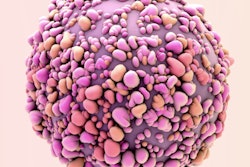
High healthcare costs continue to burden women after they have been treated for breast cancer, especially those with lymphedema, a treatment complication that affects about a third of breast cancer survivors, according to a study published online August 18 in the journal Supportive Care in Cancer.
Researchers found that women with lymphedema after breast cancer treatment had an out-of-pocket average cost of $2,306 per year, compared with $1,090 for those without the condition -- a difference of 112%. When the group included productivity factors, this out-of-pocket cost increased to $3,325 for women with lymphedema and $2,792 for those without.
"That extra [money] may not break the bank in one year," lead author Lorraine Dean, ScD, from Johns Hopkins Bloomberg School of Public Health, said in a statement. "But it can take away discretionary spending, or whittle away retirement savings."
Researchers have begun to investigate the financial burden caused by cancer treatment, which can affect both the mental and overall health of patients. To this end, Dean and colleagues evaluated breast cancer-related costs in 129 women from Pennsylvania and New Jersey, who were an average of 12 years out from diagnosis. About half of them had lymphedema; all had health insurance.
For six months, study participants kept track of both direct and indirect costs related to their healthcare, including doctor or hospital visits, medications, and even gym memberships. The women also tracked productivity losses at work and home. Those with lymphedema were asked to list costs specific to the condition, such as compression garments and bandages. The group asked the women to list these types of expenses for the previous three months and to estimate them for the coming three months. Finally, Dean and colleagues interviewed a smaller group of 40 women about the state of their financial affairs.
The study participants reported using savings or loans to cover medical costs, which at times were so high that they were unable to handle basic expenses such as utility bills. Post-treatment costs decreased the women's ability to help family members, support their children's education, and retire, and they negatively affected the ability of those with lymphedema to manage their condition. Many of the women interviewed had lost jobs or educational opportunities directly or indirectly due to their breast cancer diagnosis and treatment, according to the researchers.
To mitigate the financial burden after breast cancer treatment, financial responsibilities must be better divided between patients and insurers, the group concluded. The U.S. Congress is considering legislation that would require Medicare to cover things such as compression garments as durable medical equipment, but more needs to be done.
"The U.S. is too resource-rich for people to have to make decisions between their health and their wealth," Dean said. "By making some important changes in coverage, we can help breast cancer survivors who continue to struggle with economic burdens long after their cancers are considered cured."




















